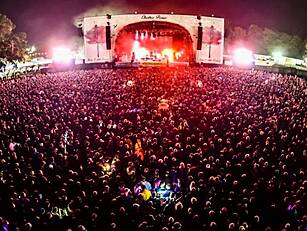In Ireland today there is a looming housing crisis: house-prices are increasing, rents are rocketing and there is a severe lack of supply.
CSO figures released today show that Dublin prices are now 24pc higher than a year ago.
In Germany almost half the population rent rather than buy.
Sven Johns is a Berlin based estate agent (& member of the European confederation of Real Estate agents).
He’s in studio to tell us more about the German housing market, how it works and what we can learn from it.
Home ownership in Germany
Around half of Germans (53%) own their homes, according to the European Union's statistics agency, Eurostat, well below the 71% average in the EU.
In Berlin and Frankfurt, these rates are just 16% and 21%, respectively.
According to a recent study two-thirds of tenants nationally don't own property, even though they could afford to.
Why do Germans not buy houses historically?
An aversion to borrowing is built into the German language: the word for debt, "Schuld," also means guilt.
But the fear of buying isn't just cultural. Germany's high share of tenants has historical roots.
Widespread destruction during World War II left the country with a huge demand for housing, which the state, housing cooperatives and employers rushed to meet more than individuals did.
After reunification, the government subsidized renovation in the former Communist east, causing a housing glut and price stagnation for about a decade. Among those who did buy then, many lost money—cementing the appeal of renting.
Increasing house prices in Germany.
Since 2010 house prices have begun to rise in Germany.
From 1992 to 2010 there was very little increase in house prices.
The low ECB interest rates have discouraged Germans from saving and they are spending more money – including on houses.
Long-term interest rates.
German banks tend to fix mortgage rates for the first 10 years. In Ireland variable rates are the norm.
Mortgage deposits
German banks are rarely permitted to lend more than 80 percent of the value of a property, therefore buyers need to accumulate a deposit of at least 20 percent.
Tax breaks?
There is no mortgage interest relief.
Ownership of a home is subject to a serious consumption tax, while landlords are encouraged by favorable tax treatment to maximize the availability of rental properties.
Housing supply
German municipal authorities consistently increase housing supply by releasing land for development on a regular basis. The ultimate driver is a central government policy of providing financial support to municipalities based on an up-to-date and accurate count of the number of residents in each area.
Renting rather than owning
The German system is deliberately structured to encourage renting rather than owning.
Leases are for an indefinite duration in Germany.
Tenants enjoy strong rights and, provided they pay their rent, are virtually immune from eviction and even from significant rent increases.
Unfurnished rental properties.
Most rental properties come unfurnished in Germany. Most don’t even have a kitchen (you have to provide your own).
You can paint the walls any colour you want but you must return it to its original condition when you leave.
Percentage of income spent renting.
Nearly 12% of renters are spending 50% of their net income on rent.














